| |
| |
 |
 |
| |
 |
|
@{mv_date_MMM d, yyyy}@ |
| |
|
| |
This week, we're highlighting some evergreen trending stories we think you should know about. Make sure to check out the podcast episode with Jennifer Woodland on Prioritizing the future of B.C. salmon farming.
- Seyitan Moritiwon, Associate editor
|
|
| |
|
| |
Massive and inappropriate use of antibiotics to treat or prevent disease in farmed fish fosters the development of resistant bacteria that have the potential of harming humans.
» Read More...
Water renewal in depuration systems for Atlantic salmon will significantly increase the removal of geosmin but the temperature of the water has no enhancing effect.
» Read More...
A first-in-the-U.S. pilot research project to develop sustainable practices for farming sablefish has now progressed to the point that a full-color sales sheet can boast to wholesalers about the “pearly white flesh, large velvety flakes, and sweet, rich flavor” of this native deep-sea fish, long a traditional food of the indigenous people of the Pacific Northwest.
» Read More...
|
| |
|
| |
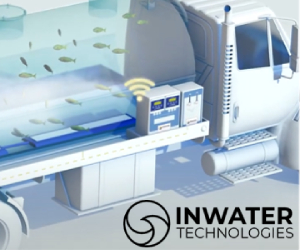
InWater’s Live Fish Transport monitoring system keeps fish safe by maintaining optimal oxygen levels during transport. Drivers can focus on reaching their destination without needing to stop frequently to adjust the oxygen.
Ask about the range of options, from a monitoring display in the truck cab to automatic oxygen control with wireless viewing on a tablet.
» Contact us to learn more!
|
| |
|
| |
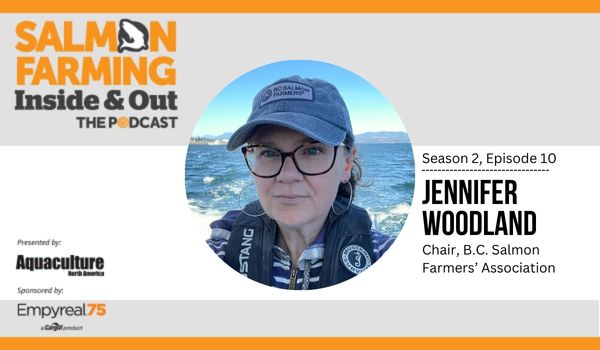 Jennifer Woodland serves as chair at B.C. Salmon Farmers’ Association. She shares an unedited update of what the B.C. salmon aquaculture looks like as it continues to navigate the uncertainties of the Canadian government’s transition plan to ban ocean net pens in British Columbia.
» Read More...
Jennifer Woodland serves as chair at B.C. Salmon Farmers’ Association. She shares an unedited update of what the B.C. salmon aquaculture looks like as it continues to navigate the uncertainties of the Canadian government’s transition plan to ban ocean net pens in British Columbia.
» Read More... |
| |
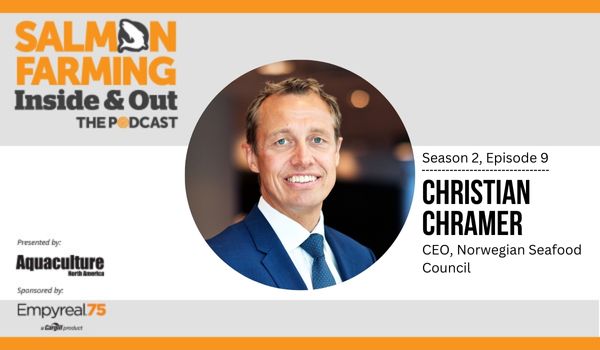 Christian Kramer, the CEO of the Norwegian Seafood Council, provides an overview of the organization, which is funded by a levy on Norwegian seafood exports and works to promote the country’s seafood globally. He talks about the importance of salmon farming to Norway’s economy and coastal communities, as well as the industry’s efforts to address public perception and sustainability challenges.
» Read More...
Christian Kramer, the CEO of the Norwegian Seafood Council, provides an overview of the organization, which is funded by a levy on Norwegian seafood exports and works to promote the country’s seafood globally. He talks about the importance of salmon farming to Norway’s economy and coastal communities, as well as the industry’s efforts to address public perception and sustainability challenges.
» Read More... |
| |
| |
|
| |
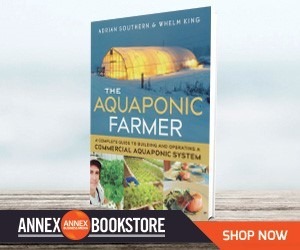
Aquaponic farming-raising fish and vegetables together commercially-is the most promising innovation for a sustainable, profitable, localized food system. Until now, systems have largely focused on warm-water fish such as tilapia. A lack of reliable information for raising fish and vegetables in the cool climates of North America and Europe has been a major stumbling block.
» Order Today
|
| |
|
| |
Solar Oysters, a sustainable aquaculture technology producer, is partnering with Blue Oyster Environmental, an oyster aquaculture company to revolutionize aquaculture technology by using solar energy for oyster production and to enhance environmental sustainability and efficiency.
» Read More...
Everybody loves a freebie. How about learning how to grow oysters? A suite of 13 educational sessions on growing oysters in the Gulf of Mexico is online at https://oyster-culture.teachable.com/.
» Read More...
|
| |
|
| |
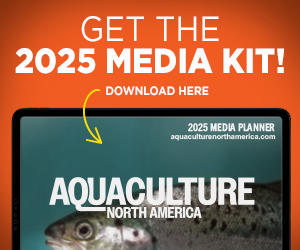
|
| |
|
| |
|
|
| |
| |







